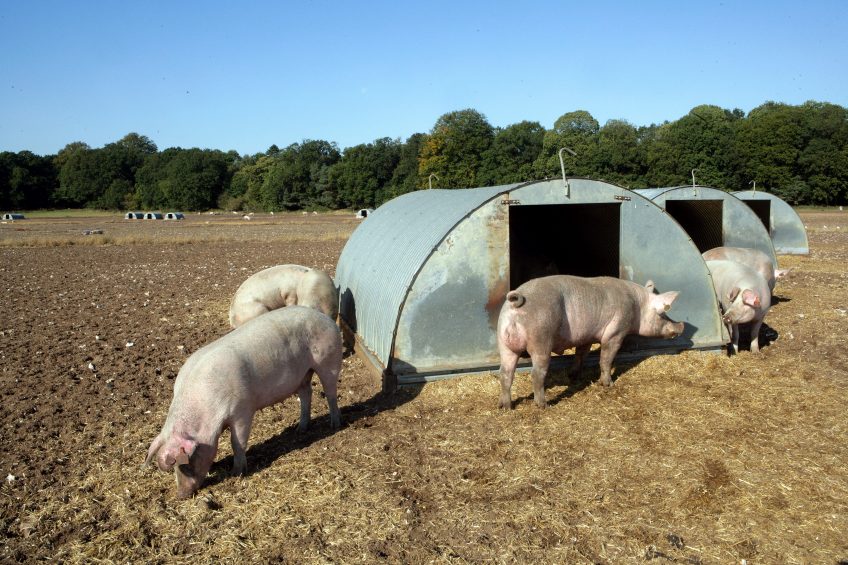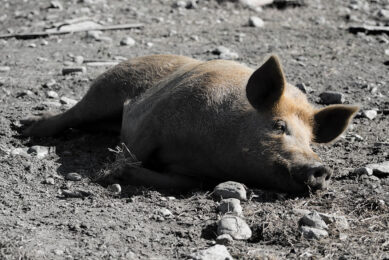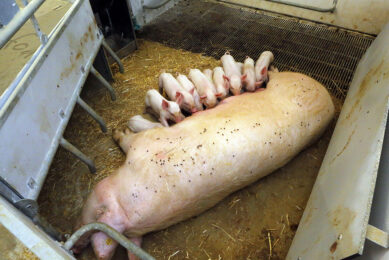UK pig producers worried about labour shortage

Pig producers in Great Britain are worried about a shortage of skilled, experienced labourers after Brexit. For the National Pig Assocation, retaining sufficient access to EU labour remains one of the top Brexit priorities.
The British Prime Minister Theresa May announced in her first major speech on Brexit that she wants a clean break with the EU after the country voted for a departure from the European Union in a referendum in June 2016. That means leaving the internal market and the custom union and controlling or rather restricting the numbers of people coming to the UK from Europe.
She said, “You can’t be half in and half out.”
The prime minister still wants a new free trading arrangement with the rest of the EU, thus retaining ‘frictionless trade’, adding, “But rather no deal than a bad deal.”
Pig industry fears restriction of access for EU nationals
For the pig industry, the restriction of access for EU nationals is the main worry. The country’s business has on several occasions highlighted that the sector needs foreign workers, in particular from Eastern European countries.
In a statement, the UK’s National Pig Association (NPA) responded, “Our core message is the need to ensure the government’s focus on immigration does not have unintended consequences for sectors like pig production.”
Without EU labour no UK pig industry
Chief executive Zoe Davies added: “Without EU labour, there will be no British pig industry as we know it. We understand why immigration is going go to be a priority for Mrs May but, along with many other sectors, we fear this could result in serious unintended consequences if politics triumphs over economic reality.”
She continued to say, “We are heavily reliant on EU labour on our farms, in our processing plants and across the wider industry, to produce British pigmeat, which is so highly valued in our home and export markets. We must do everything we can to retain that access.”
She also underlined the other priority, which is retaining tariff-free access for export to the EU markets.
A recent survey showed 58% of businesses across the pig supply chain employed at least one migrant worker, while nearly half would not survive or be forced to make changes to how they operated without migrant labour.
No jeopardising of pig jobs
NPA policy services officer Lizzie Wilson said: “We are making the case in the strongest possible terms to government that, any immigration policies put in place, must not jeopardise our access to permanent workers, both skilled and unskilled, who want to live and work in the UK. And it is not just the policies we put in place.”
She added, “This is also about the rhetoric around Brexit and the messages we send out to EU workers. On behalf of the UK pig sector, we continue to welcome them with open arms.”
Pig producer Cranswick employing foreign staff
The processing industry also employs many migrant workers from other EU countries. Earlier, Adam Couch, chief executive of Britain’s largest pork producer Cranswick, emphasised this in an interview with one of Britain’s leading newspapers Daily Telegraph.
He told the paper that between 35 to 65% of his staff come from abroad, predominantly from Eastern and Central Europe. He told the newspaper, “Already, people are apprehensive about coming to the UK, worried they might not be welcomed. The depreciation of the pound also means that they will be sending home less than they would have 12 months ago.”
“A lot of our senior staff are now from overseas and we really value them and would not like to see anything to disrupt that.”
 Beheer
Beheer








 WP Admin
WP Admin  Bewerk bericht
Bewerk bericht